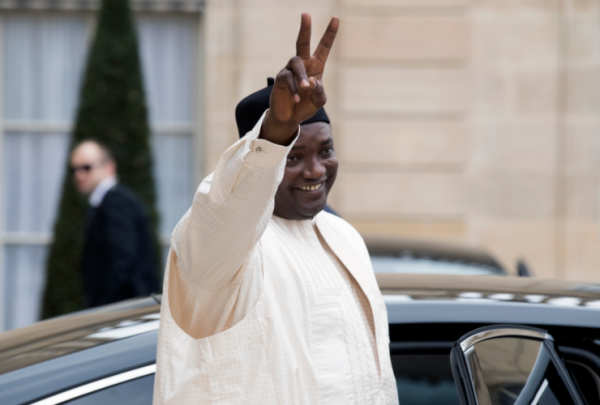Two Gambian newspapers received orders on Friday to immediately cease operations, according to local journalists, in what is apparently the second attempt within a month to censor Gambian media.
“We are very concerned at another apparent effort to censor the Gambian media,” said IPI Press Freedom Manager Barbara Trionfi. “We hope that this issue is swiftly resolved so that The Daily News and The Standard newspapers can resume publication.”
On Friday, Sep. 14, three plainclothes officers from the National Intelligence Agency visited the offices of The Daily News and The Standard and told them to immediately cease operations, an order that the agents said had come from the office of Gambian President Yahya Jammeh, journalists told IPI by phone today.
Saikou Jammeh, chief editor of The Daily News, and Sheriff Bojang, chief editor of The Standard, told IPI that their papers have temporarily ceased publication until they learn more about the apparent order. According to Jammeh and Bojang, while the men who visited their offices were known NIA officers, they neither showed identification nor provided any written order for closure.
Jammeh told IPI that, as far as he knows, there are only two legal ways to shut down a newspaper in The Gambia – either with a court order, or on specific police instructions, for example if the newspaper’s office was the scene of a crime that is under investigation.
Bojang was similarly unclear about the nature of the order to close his paper. “It was on Friday; we were having some training course at our offices in Bakau, which is about 10 kilometres from Banjul,” he told IPI. “Three gentlemen came and said they were from the office of the President and said we should cease with immediate effect.” Bojang said he asked the men why they should stop, and for how long they should stop, but was told to “find out from the office of the president.”
The newspapers are currently trying to find out more information about the order.
The Daily News is published three days a week, while The Standard is a daily paper. Both privately-owned English-language newspapers have covered sensitive political issues, including the recent execution of nine death row inmates in The Gambia. President Jammeh was heavily criticized by international rights groups for the executions.
It was not immediately clear whether the apparent orders to stop the newspapers were the result of any one issue. “I don’t think there is any immediate trigger, although the whole of last week we’ve been running pretty typical although also balanced opinion on the execution of the nine death row inmates,” Bojang said. “Some were very critical. […] But of course we had people from the government side as well, so we thought it was balanced coverage.”
“Ever since they executed those nine people, [the two newspapers] have a lot of people to speak on this issue both locally and internationally,” Jammeh said.
This is the second time in a month that the Gambian authorities have censored the media. In August, Teranga FM was shut down after it was warned to stop a program that translated newspaper reports into local languages. It remains off the air.


